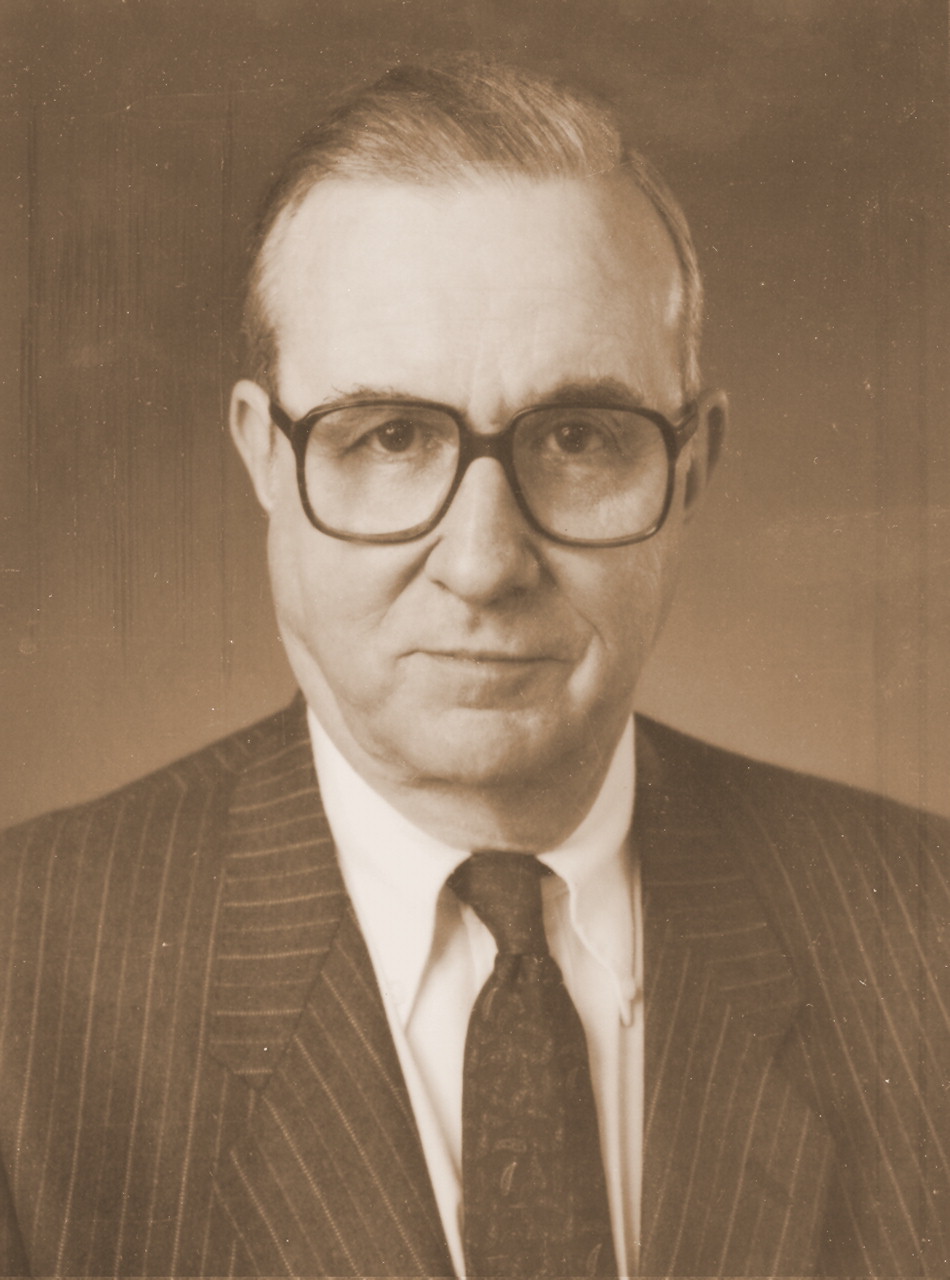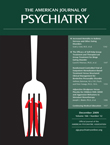We will grieve not, rather find
Strength in what remains behind;
In the primal sympathy
Which having been must ever be;
In the soothing thoughts that spring
Out of human suffering....
William Wordsworth, “Ode: Intimations of Immortality”
John Case Nemiah, the 10th editor of the
American Journal of Psychiatry, died in May 2009, at age 90. A profoundly idealistic and sympathetic man, John loved Plato, and he also loved the English Romantic poets. Wordsworth’s lines are a fitting epigraph for this homage and memorial to his life and career.
John’s life was characterized by grace, elegance, humanism, humility, authenticity, and altruism—a constellation of traits that are all too often missing from our current world. To know him was to be inspired to follow his exemplary approach to his work and to his fellow human beings.
His beginning was indeed humble: he was born at home on Nov. 30, 1918, in an era before hospital births were routine. John received a classical education, quite literally. His father Royal Nemiah taught Classics at Dartmouth in Hanover, N.H., where John grew up. John’s childhood was shaped by an environment that taught love of language and love of truth, along with liberal doses of good manners, moral and social responsibility, and self-discipline. One of Royal Nemiah’s star students, Theodor Seuss Geisel, learned similar values and went on to express them in his writings as the much-beloved Dr. Seuss. John was destined to pass on his father’s teachings in other ways, through his many contributions as a psychiatrist, teacher, scholar, colleague, and editor.
John majored in Classics at Yale as an undergraduate, becoming fluent in both Greek and Latin. He received his medical education at Harvard and subsequently did residency training there and at Yale in both neurology and psychiatry. In addition, he completed psychoanalytic training, building on an interest that began when he first read Freud as a boarding student at Hotchkiss School in Connecticut. He rose steadily through the ranks in the Harvard system, first as a highly esteemed teacher at Massachusetts General Hospital and later (1968) as Psychiatrist-in-Chief at Beth Israel. In 1961 he also published his classic textbook, Foundations of Psychopathology, which was built on his fascination with the “mind-body problem.” Now, nearly 50 years later, it is still good reading. In 1985 John “retired” from Beth Israel at age 67 and returned to Hanover and Dartmouth, where he was a much-loved teacher for most of the rest of his life.
John was a legendary teacher. For many years he gave a brilliant Saturday morning lecture series on psychopathology for second-year medical students that featured tape-recorded interviews that he collected. The lectures were so successful that the Harvard surgeons began to complain about Nemiah: he was enticing far too many talented students to go into psychiatry! John was equally gifted at providing individual tutorials on psychopathology and psychotherapy during his many years at Mass General, Beth Israel, and Dartmouth. John was also a dedicated and supportive colleague and leader. Those of us who knew him well have personally experienced his generosity, his capacity for empathy, his sensitivity, and his kindness; and we have heard the many other recipients express their gratitude to him for these traits as well. He was a man who embodied and expressed the blessedness of giving—to students, to residents, to members of his department, to his colleagues, and to his field. He was deeply humble. His view of himself was that he “didn’t do much,” and therefore he was unencumbered by any sense of entitlement, narcissism, or pride.
While at Beth Israel he was invited to succeed Francis Braceland as Editor-in-Chief of The American Journal of Psychiatry . He served his field in this role for 15 years (1978–1993), continuing to edit the AJP until he was 75. John was largely responsible for shaping the “green journal” into its current form, modernizing it with many forward-looking innovations that have become editorial standards and that we now take for granted. Although not a quantitative empirical scientist, John’s dedication to scholarship and truth gave him the capacity to value and recognize high-quality research, including biologically oriented research. He required rigorous peer review for all submitted articles, and he created a computerized database of reviewers. He also invited two leading statisticians to provide statistical evaluation of all submitted manuscripts. As a septuagenarian, he brought the AJP into the modern electronic world of desktop publishing, an innovation that combined efficiency with quality control and that gave the AJP its very individualized and elegant look and feel.
I was privileged to serve as a member of John’s Editorial Board and subsequently to become his Book Forum Editor, then his Deputy Editor, and then his successor as Editor-in-Chief. Winning his respect was one of my greatest honors, and working with him was one of my greatest treats. John mentored me with the same kindly and affectionate tutorials that he had lavished on his many students over many years. Because he asked me to join him at the Journal office for several days each month during my term as Deputy Editor, I grew to know him well. During the day we read manuscripts and discussed editorial practices. Then as now, at least 75% of manuscripts had to be rejected. John taught me his habit of gently softening the blow by writing a personal handwritten note of encouragement to accompany the standard rejection letter. In addition to work, however, there was also play, in the form of a casual noontime stroll to Fahrney’s pen shop to admire the latest in fountain pens, occasionally indulging ourselves in the treat of a new pen. (I’m afraid that I was more self-indulgent than frugal John.) Best of all were our conversations over dinner. We both loved literature and discussed it often. We were both fascinated by human nature and human behavior. Although full of “primal sympathy,” John also understood human failings with the insightfulness of an experienced psychoanalyst, and he could expose the clay feet of some of the “mighty” with a deft flick of a wickedly wise and incisive comment. Aware of his own failings, however, he was never mean-spirited. He would regale me by telling me jokes from his large repertoire, always delivered with perfect timing and verbal inflection, an ability that he was known to also share with many others. Both Anglophiles, we discussed the glories of the British landscape and the foibles of British society, sometimes ending the meal by savoring a single malt Scotch.
I shall miss him, and so will many others. We can find strength, however, in what remains behind—memories of his gifts of wisdom, generosity, and friendship. And in his primal sympathy, which having been, shall ever be.


